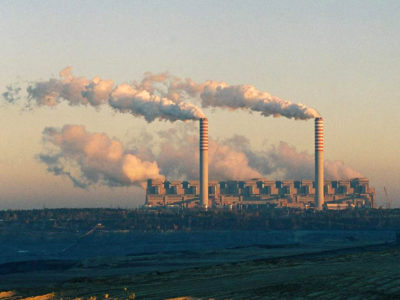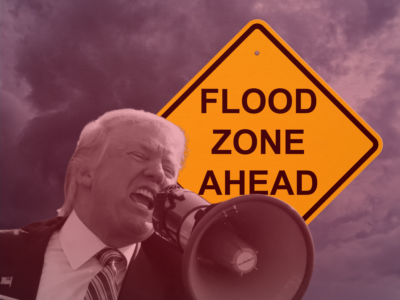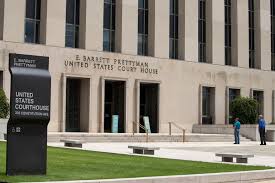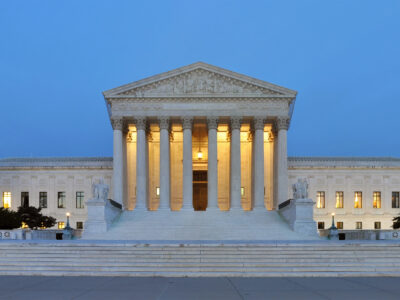U.S. Supreme Court
The Legal Complexities of Deregulating Power Plant Carbon Emissions
The Supreme Court struck down Obama’s powerplant regulation. but it didn’t endorse Trump’s first try either.
We are likely to end up with a Trump rule for powerplant emissions that is much weaker than the Biden rule, but not as weak as EPA’s effort in the first Trump Administration. And the process will take Trump longer this time, with a greater litigation risk.This matters because even a very weak rule may require significant investments in improving powerplant efficiency, which could result in some plant closures.
CONTINUE READINGWhat Happens If EPA Revokes the Endangerment Finding?
The action would mean full-blown warfare against all things climate.
We are likely to learn next week if the Trump Administration will eviscerate the most important climate regulations the Biden Administration issued over the last four years. Under Trump’s “Unleashing American Energy” Executive Order, EPA Administrator Lee Zeldin is supposed to recommend by February 19 whether to reverse the central basis for much of the …
Continue reading “What Happens If EPA Revokes the Endangerment Finding?”
CONTINUE READINGLitigating Against Trump
Trump’s agencies had a terrible litigation record the first time. It will probably get better – but not that much better.
In his first term, Trump’s litigation record was awful – winning only one case in four by some estimates.The Trump folks should do a better this time. But they may not improve that much, and could still lose more often than they win. Money invested in litigating against the Administration will be well spent. Meticulous attention to evidence and legal requirements is likely to remain a weak point.
CONTINUE READINGGovernment by Reconciliation
The reconciliation process avoids the risk of a Senate filibuster. But it comes wth procedural and political complications.
The GOP’s efforts to accomplish a big agenda through the reconciliation process will face serious complications. The Byrd rule limits the use of reconciliation to achieve non-budgetary purposes. A razor-thin House majority and factional warfare will make it hard to reach deals, as will Trump’s (& Musk;s) distaste for compromise.
CONTINUE READINGWhat to Expect When You’re Expecting Trump: Looking Ahead to 2025
Before even taking office, Trump has confirmed that “normality” is out the window.
Trump’s strategy involves appointing inexperienced administrators and to alienate or eliminate the experienced public servants who could help them implement their policies effectively.The good news is that Trump has not learned the lessons of his first administration and continues to think that ideology and bravado can substitute for competence. The courts are likely to tell him otherwise.
CONTINUE READING2024: Ending on a Dark Note
It was a pretty good year for the environment – until November 5, that is.
2024 ended on a grim note for anyone who cares about the environment. Donald Trump is once again in the White House. His record in the first term made him in the most anti-environmental President in history. The story of the next four years will be a struggle to limit his damage while doing as much as we can to continue progress at the state level and in the private sector.
CONTINUE READINGTest Your Knowledge of Climate Law
How much do you really know about the law relating to climate change?
How much do you really know about climate law? Expert or novice, this quiz will test your knowledge and maybe help you fill in some gaps.
CONTINUE READINGGood & Bad Environmental News From the U.S. Supreme Court
Escalating Legal Attacks on California’s Longstanding Clean Air Act “Waiver” Authority
This past week, the U.S. Supreme Court issued important orders in two closely-related environmental cases previously decided by the U.S. Court of Appeals for the District of Columbia. Last Friday the justices granted review in Diamond Alternative Energy v. Environmental Protection Agency, agreeing to decide whether fossil fuel manufacturers have legal standing to challenge an …
Continue reading “Good & Bad Environmental News From the U.S. Supreme Court”
CONTINUE READINGEPA Grants California’s Waivers for Clean Cars and Clean Trucks
By finally granting the Advanced Clean Car II waiver, the agency just undercut Trump’s planned attack on electric vehicles.
EPA just made the incoming Trump Administration’s efforts to stop the move toward clean, zero emission vehicles a whole lot tougher. And ironically, the U.S. Supreme Court’s controversial decision overturning deference to agency actions, Loper Bright v Raimondo, may help California in any litigation over the legitimacy of the waiver request. EPA finally granted California …
Continue reading “EPA Grants California’s Waivers for Clean Cars and Clean Trucks”
CONTINUE READINGNEPA in the Supreme Court: The Seven Counties Oral Argument
Some arguments surfaced in the discussion that the Court would do well to ignore.
Several arguments popped up in the Supreme Court’s discussion of a major NEPA case that appealed to at least some of the Justices. We think that they would do well to rethink them. Each of the arguments distracts attention from what ought to be the key question: what impacts should the agency take into account in making its decision? We hope, when it comes time to draft opinions, the Justices will think through the arguments a little more fully and head in a different direction.
CONTINUE READING












